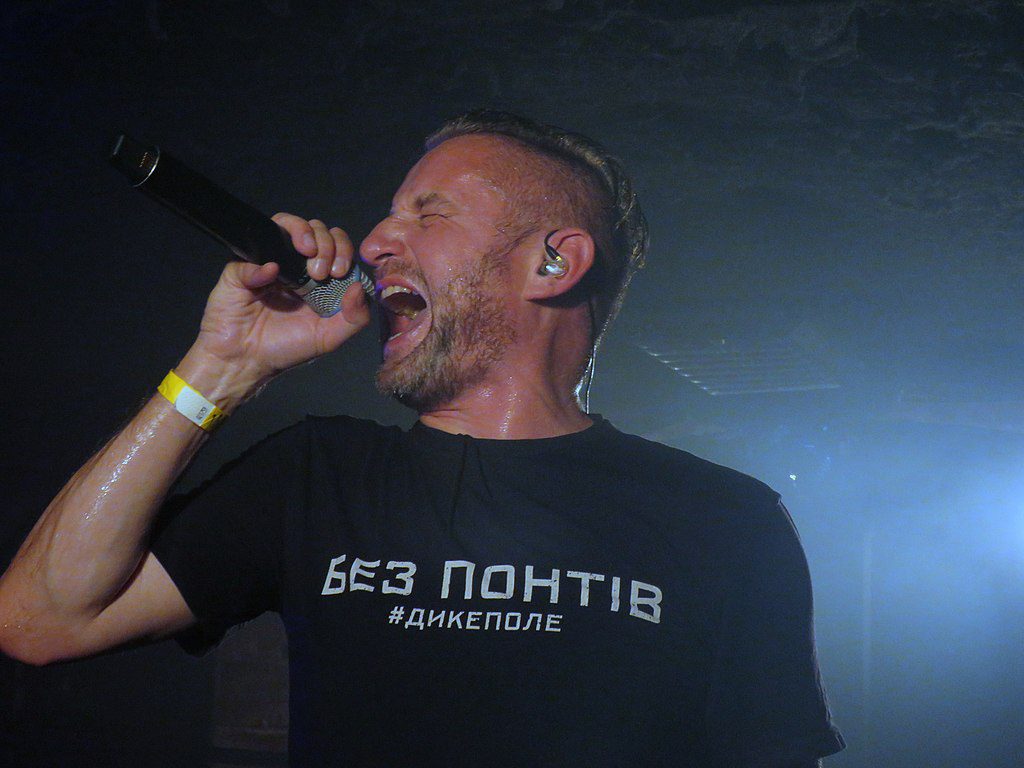On Sunday, October 23rd, the Peace Prize of the German Book Trade, worth €25,000, was awarded to Ukrainian writer and musician Serhiy Zhadan. It is an award, for some, that needs some explaining.
According to the jury, Zhadan won because of “his outstanding artistic work as well as for his unequivocal humanitarian stance.” Zhadan, who was born in the Luhansk region in 1974, told the press that he is “very grateful that the organizers have decided to give the prize to a Ukrainian this year,” stressing that he doesn’t feel “personally vindicated as an author,” but rather considers this to be “a sign of support for Ukrainian literature.”
According to the jury of the Peace Prize, the Ukrainian author repeatedly “risks his own life to help people affected by war and thus to call greater attention to their plight.” The jury concluded that Zhadan reveals how Ukrainians “defy the violence around them,” while “striving instead to lead independent lives rooted in peace and freedom.”
The German playwright Sasha Marianna Salzmann compared the impact of Zhadan’s works to that of the exalted sixteenth-century painter Pieter Bruegel: “Zhadan paints images in which unforgettable outsiders guzzle and scuffle themselves into the reader’s consciousness. They carve out the narrative of a newly orienting Ukrainian society.” To Salzmann, his literature embodies “the Ukrainian society taking a breath.”
Zhadan took advantage of the ceremonial publicity to air his frustration with those countries seeking to resolve the war through negotiations. Zhadan—who took part in the Maidan protests of 2013 and reflected on the conflict in Eastern Ukraine ever since 2014—warned in his acceptance speech against the lure of the easy peace:
Now, when we talk about peace in the face of this bloody, dramatic war unleashed by Russia, some do not want to acknowledge a simple fact: Without justice, there is no peace. And when some Europeans accuse the Ukrainians, as if their refusal to surrender is almost an expression of militarism and radicalism, they are doing something strange: in trying to stay in their comfort zone, they are circumstantially crossing the line of ethics. This is not a question to the Ukrainians, this is a question to the world. To their existing or non-existing willingness, because of questionable material advantages and a false will to pacifism, to swallow once again the totally disinhibited undignified.
Zhadan has been praised for his use of “a unique language that provides us with a vivid and differentiated portrait of the reality that many of us chose to disregard for far too long.” But there is some dispute that the line between art and propaganda may have been stretched in this year’s award. Critics point out that his stance on the support of the Ukrainian military and the language used in some of his books to describe Russians may not be deserving of the Peace Prize.
Journalist Franz Alt from Die Zeit pointed to passages from Zhadan’s latest work Himmel über Charkiw (Heaven above Charkiw), in which the prize winner refers to Russians as “a horde,” “criminals,” “animals,” and “filth.” Alt quotes a passage: “The Russians are barbarians that have come to destroy our history, our culture, and our education.” Another section wishes the worst on the Russians: “burn in hell, you pigs.” While Alt acknowledges that such feelings of hatred may be understandable, he decidedly rejects the notion that hatred not specifically targeting the leadership of Russia, but aimed against Russians in general, is not conducive to achieving peace let alone worthy of a renowned peace prize.
In December, Serhiy Zhadan will also receive the Hannah Arendt Prize worth €10,000 from the city of Bremen and the Heinrich-Böll-Stiftung, the party-affiliated foundation of the Greens in Germany, for “not only describing the Ukrainian world, but also helping to understand it.” The jury refers to him as a “great citizen in the sense of Arendt,” who “cares for the society he lives and works in, by contributing to not letting citizens lose hope in the face of the Russian war of attack.”





